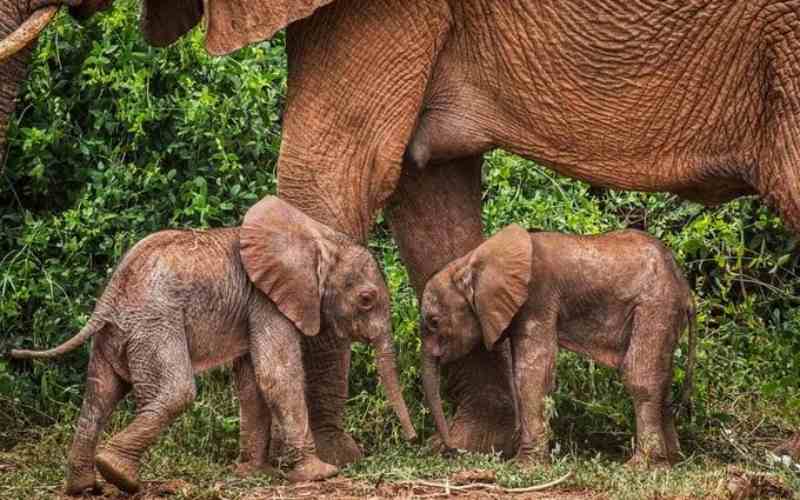×
The Standard e-Paper
Kenya’s Boldest Voice

Bora from the Winds Family gave birth to a male and a female calf. [Courtesy]
An elephant has given birth to twin calves at the Samburu National Reserve, an occurrence that last happened in 2006 but the calves did not survive.